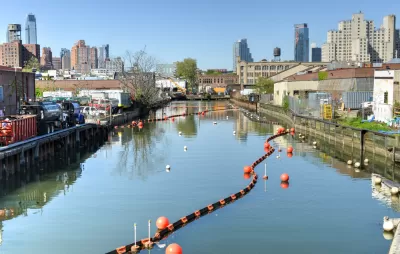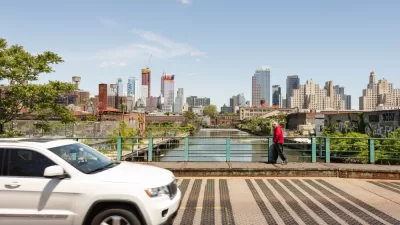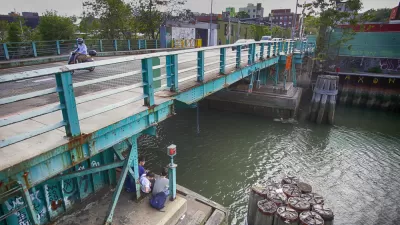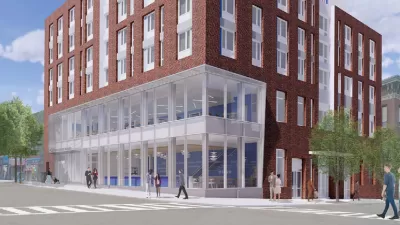The report outlines the potential impacts on the neighborhood's racial diversity and the availability of below-market housing units.

A "first-of-its-kind study" on the potential racial impact of a proposed rezoning plan found that Gowanus could become more diverse if the rezoning is implemented, reports Rachel Holliday Smith. "The study also offers the first glimpse at the potential value of a Council bill passed just weeks ago requiring 'racial equity reports on housing and opportunity' for rezonings in the future."
"The 'Racial Equity Report,' produced by Columbia urban planning professor Lance Freeman, concluded that the rezoning would likely cause Gowanus, currently one of the whitest neighborhoods in the five boroughs, to 'much more closely match the diversity of New York City rather than the [current] population of the local area.'" According to the report, "under the zoning proposal, the neighborhood could gain as many as 2,950 housing units rented at below-market-rate prices through the city’s affordable housing lottery, out of a total 8,495 newly constructed apartments." The zoning change "follows years of protests over rezonings that looked very different from the one in majority-white and wealthy Gowanus — an outlier in the recent history of neighborhood land use proposals."
Although "[t]he Gowanus report has come late in the rezoning process, which has been in the works for years and has already begun the formal Uniform Land Use Review Procedure, or ULURP, necessary to get a final green light," it "calls for more efforts to preserve and maintain Gowanus’ public housing complexes, lowering income levels on future affordable housing and investing more in workforce development services to make up for industrial and auto-related jobs the rezoning will likely displace."
FULL STORY: Gowanus could become more diverse after rezoning, racial impact study finds

Alabama: Trump Terminates Settlements for Black Communities Harmed By Raw Sewage
Trump deemed the landmark civil rights agreement “illegal DEI and environmental justice policy.”

Planetizen Federal Action Tracker
A weekly monitor of how Trump’s orders and actions are impacting planners and planning in America.

Why Should We Subsidize Public Transportation?
Many public transit agencies face financial stress due to rising costs, declining fare revenue, and declining subsidies. Transit advocates must provide a strong business case for increasing public transit funding.

Understanding Road Diets
An explainer from Momentum highlights the advantages of reducing vehicle lanes in favor of more bike, transit, and pedestrian infrastructure.

New California Law Regulates Warehouse Pollution
A new law tightens building and emissions regulations for large distribution warehouses to mitigate air pollution and traffic in surrounding communities.

Phoenix Announces Opening Date for Light Rail Extension
The South Central extension will connect South Phoenix to downtown and other major hubs starting on June 7.
Urban Design for Planners 1: Software Tools
This six-course series explores essential urban design concepts using open source software and equips planners with the tools they need to participate fully in the urban design process.
Planning for Universal Design
Learn the tools for implementing Universal Design in planning regulations.
Caltrans
Smith Gee Studio
Institute for Housing and Urban Development Studies (IHS)
City of Grandview
Harvard GSD Executive Education
Toledo-Lucas County Plan Commissions
Salt Lake City
NYU Wagner Graduate School of Public Service





























